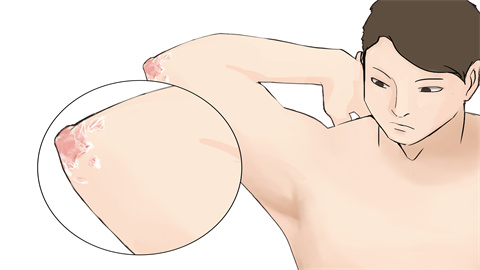What foods should not be eaten for psoriasis?
Generally, patients with psoriasis should avoid foods that may worsen their condition or trigger symptoms. Common examples include spicy and irritating foods, allergenic foods, high-sugar foods, high-fat foods, and foods that easily cause allergic reactions. Detailed explanations are as follows:

1. Spicy and irritating foods: Chili peppers, Sichuan peppercorns, ginger, mustard, curry, and similar items are considered spicy and irritating. These foods may stimulate inflammatory responses in the body, worsening symptoms such as skin redness and itching, and hindering the stabilization of psoriasis. They should be strictly avoided, especially during acute flare-ups.
2. Allergenic foods: Seafood, lamb, dog meat, goose meat, and other similar foods may trigger or worsen abnormal immune responses in the skin. Some patients might experience worsening skin lesions or increased itching after consumption. It is recommended to choose cautiously or avoid these foods based on individual tolerance.
3. High-sugar foods: High-sugar foods such as cakes, candies, desserts, sugary beverages, and refined sugar can lead to fluctuations in blood glucose levels when consumed in excess. This may impair immune system function, intensify systemic inflammation, delay healing of psoriatic skin lesions, and increase the risk of complications over time.
4. High-fat foods: High-fat foods such as fried foods, fatty meats, animal offal, butter, and fried nuts are rich in saturated and trans fats. Long-term consumption can elevate blood lipid levels, impair metabolic function, and potentially exacerbate abnormal sebum secretion, which may indirectly hinder the control of psoriasis symptoms.
5. Allergenic foods: Some psoriasis patients may have allergic constitutions and could react to certain foods such as mangoes, pineapples, durians, and eggs, which may act as allergens, triggering allergic skin reactions that could in turn induce or worsen psoriasis symptoms.
In daily life, in addition to dietary adjustments, patients can engage in appropriate mild physical exercises such as walking, jogging, and practicing tai chi to enhance physical immunity and promote skin metabolism.










